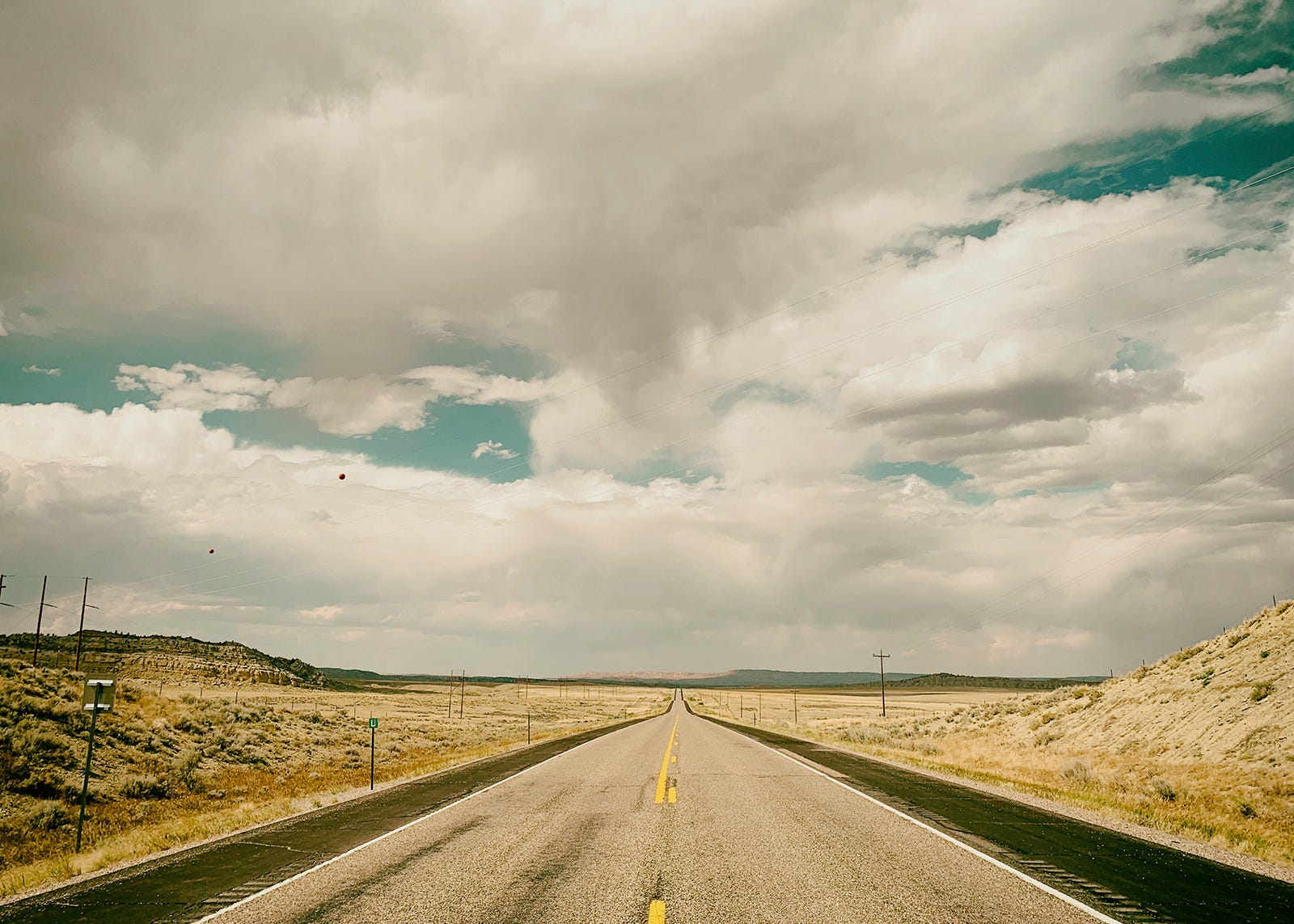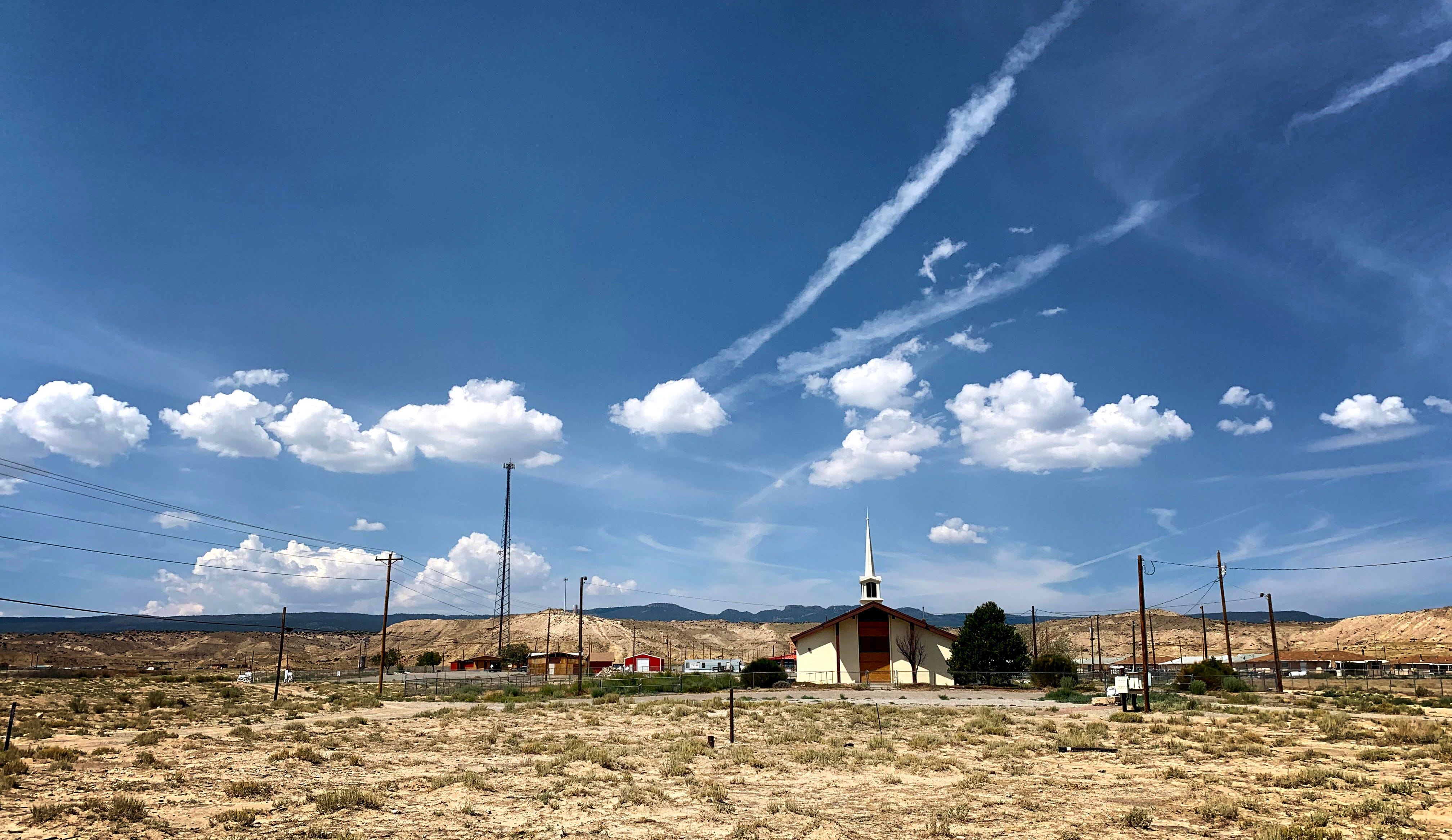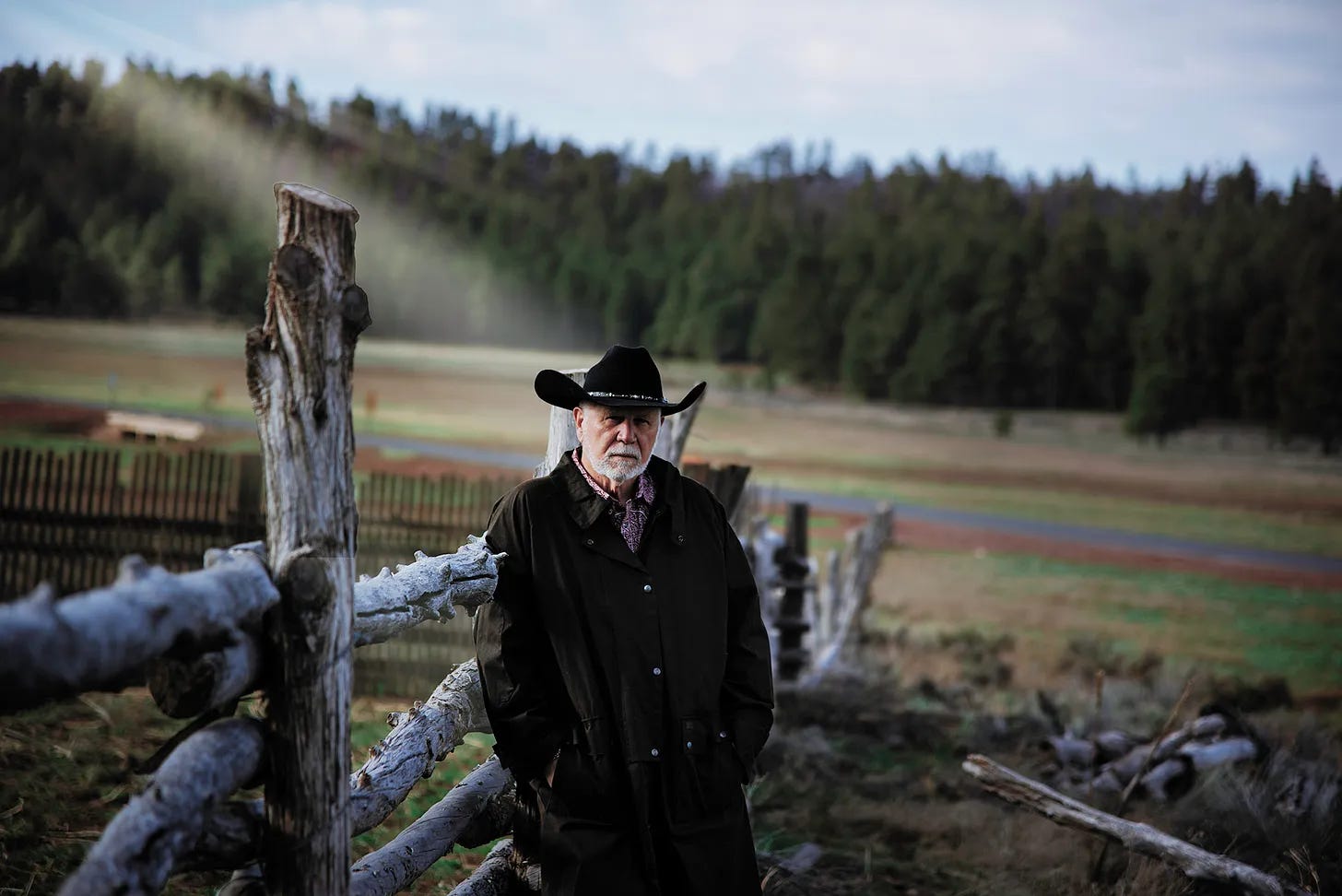In The Frame 5-21-2023. Do You Have A Story To Tell? Pitch It the Right Way
Happy Sunday tribe. I am so glad you are here today.
You are receiving this email because you have demonstrated the deep thinking and unexplained whimsy of a creative person. My name is Don, and I love to talk about all things creative. I send these several times a week (and for the paid subscribers, a few more). I try to keep these emails informative, instructive, entertaining, and fun. There are thousands of email newsletters out there, and I am honored you chose to read mine. Here’s a picture of a road for you. I love roads.
How To Pitch a Story Idea to a Publisher
Pitching a photo story idea to a publisher, journal, or blog is not a difficult thing to do, but there are some things that will make it so much better and possibly more successful.
Pitching means contacting the magazine and letting them know you have a story or the images for a potential story and think they should consider hiring you to deliver the story to them.
EezyPeezy, right?
For instance, I think there may be a story about the small towns that are being boarded up in the western states of the US.
I have some images to go along with them and think that maybe they could be of interest to the people who read their publication.
(People have a tendency to tell you to start small. Go with the local magazines first. I am going to tell you to do both: local AND national. You never know how high you could have gone, but it is easy to find the bottom. Ya know.
So I decide to pitch the New York Times Magazine.
It is a very respectable publication and does similar stories.
Dear [editor’s name]
My name is Don Giannatti and I am a photographer and avid motocycle traveler in the western part of the US.
In recent years, I have noticed more and more small towns being boarded up and shuttered, even as they seem to be attracting attention from retirees and immigrants. I would like to propose a story on this unique situation, and perhaps we can find the answers together. I am planning to shoot these towns in the fall of 2020, with the focus on meeting the people, politicians, and selected stakeholders in the area to find out what is happening from their perspective.
In addition, I will be shooting limited video of interviews and discussions I have.
This project comes from a lifetime of living in the West, and 40 years as a photographer/storyteller have given me a perspective of understanding and empathy.
I have attached three images I have already shot for this project. (More images on my website, project name: “In The West": Is it Sunset for Small Town Western Life?”
You can see more of my work here:
www.dongiannattiphotography.com
You may contact me by email, or text/phone at 602 814 1468Thank you very much for consideration.
— Don Giannatti
It doesn’t have to be long or detailed. If they are interested in it, they will call or contact you. In fact, if you can keep it to 3–4 paragraphs, you will be better off.
If you have more to say about it, send them a link to your project on your website. Do not enclose a portfolio, send them up to three images. Any more should be on your site with a link.
Focus on what you want to do for them.
Do your due diligence by looking for similar articles they may have run, or similar articles at all. While you can certainly offer a different take on any singular project, a rehash is probably not going to interest them.
Similar stories:
Are all small towns dying? Can you save a small town?
Abandoned in America: 10 American Ghost Towns to Visit
How to turn a struggling small town around
But there’s nothing on the specifically noted western small towns and how they are being overlooked and ignored.
This means that my idea may have a chance… IF they think it is worthwhile for their subscribers.
And if they like it, but have a different twist on it, they may let me know what they are thinking and give me the gig.
Or not.
No guarantees. But damn sure, if I do NOT pitch this idea, I damn sure will NOT get it.
Ya know.
Five Things You Should Do This Week
Sign up for Ash Ambirge’s wonderful newsletter, “Meat and Hair”. It will help you become a much better writer, and also give you some chuckles in the morning. Use this link and do sign the heck up. Seriously.
Read Angie Webb’s beautifully written story about waking up one day and living the dream. From small town shooter to directing commercials, and working for major brands. (Angie is a P52 Alum and we are so proud.)
Find the exact tool you need for your freelancing on this page. It is one of the best lists I have ever seen.
Watch or listen to Augustin Hadelich play Samuel Barber’s Violin Concerto. It is one of my favorites and even if you do not care for ‘classical music,” I think you may like this one.
Get involved with the 24 Frames in May project. There’s still time to dust off that old Pentax or F4 and shoot a roll.
ON FINDING A MENTOR
I’m just going to say this: everyone needs a mentor, a guide, a coach.
And this is hard for me to say because I hate sounding like some internet person hawking their stupid course. I am a mentor, but I want this to be a discussion of finding one, not necessarily me.
Got it?
Why is it that we need a mentor?
What difference does a coach make?
A coach or mentor in your life is not simply a nice-to-have; it’s seriously a must-have.
They're a bridge between where you are and where you want to be.
That next version of yourself that you're constantly trying to reach.
Now, we in this newsletter are members of photography tribes. Whether by affiliation or declaration, most of us have chosen a tribe.
Landscape shooter tribe.
Fashion tribe.
Small camera tribe.
Film tribe.
Portrait tribe.
This gives us a base of perception, some credibility, and a sense of what we need to do to remain in this tribe.
I would suggest that these are subsets of other tribes.
Hobbyist tribe.
Weekender tribe.
Art photographer tribe.
Wannabeeaphotographerreallybad tribe.
Failed at it tribe.
Successful at it tribe
Emerging into one’s own tribe.
Hobbyist tribe.
> Landscape tribe.
> Black and white tribe
> Large format film tribe
You know. Like that.
Tribes have rules, regulations, peers, suggested models of behavior, track records, histories, codes, and the good old general vibe.
The tribes I like are varied, as I am sure yours are as well.
They can vary by genre, technique, or even aesthetic.
But the tribe I love most is the working photographer who is creating a sustainable living for themselves and their families.
These photographers, both novices and experts alike, stand to gain immeasurably from a mentor who has walked that path before them.
It's one thing to snap a picture; it's another to create a photograph.
And yet another to build a compelling portfolio.
A mentor can guide you through these stages, helping you develop your own voice, your style, and your eye for the shots that matter.
When someone well-seasoned in your tribe looks at your portfolio, they won't just see a collection of photos. They’ll see a roadmap of where you've been, where you are, and, more importantly, where you have the potential to go.
They’ll point out nuances you may miss, hidden themes that go unnoticed, and the untapped potential of the work - things only an experienced eye can spot.
This is the unique power of a mentor.
A mentor or coach not only gives you their knowledge, but they also save you something even more valuable: time.
They’ve walked the narrow path before you. They’ve stumbled, faced obstacles large and small, and overcome challenges. Challenges unique to the path you are on.
They’ve paid the steep tuition at the school of hard knocks, so you don't have to.
By sharing their experiences, they can help you identify possible pitfalls, roadblocks, dead ends, and the inevitable charlatan dream merchants.
Having a good coach is empowering. Truly empowering.
Your potential is like a piece of art covered in a dark green slime-like substance that smells sort of like five-day-old gumbo.
A good coach helps you wipe the old gumbo-smelling gunk off to uncover it.
They work with you to overcome self-doubt, fear, and debilitating cases of imposter syndrome.
They challenge you to work smarter and strive for more.
They inspire you to unlock potential you never knew you had.
It’s not a handout. It’s a partnership.
it’s not a friendly chat, it’s a mentorship meeting.
It’s rarely comfortable; you are being challenged to grow.
In the end, a coach provides guidance, support, and the tools to implement change.
But it’s up to you to use them.
Finding a mentor or coach isn't about finding someone who will solve all your problems. It's about finding someone who will make you confront your problems, be they internal or external, and challenge you to find viable solutions.
And ultimately guide you to becoming the best possible version of yourself.
WHERE TO FIND A MENTOR OR COACH
Professional Associations: First and foremost, consider joining a professional association. They're goldmines for networking. The Professional Photographers of America (PPA), American Society of Media Photographers (ASMP), or the National Press Photographers Association (NPPA) are great starting points. They host conventions, seminars, and workshops where you can connect with potential mentors.
Photography Workshops: Photography workshops are hotspots for talent. They're like melting pots of diverse, seasoned photographers who are passionate about their craft. Attend these. Mingle. You might just find your mentor among the instructors or even fellow participants.
Online Photography Forums: The internet is a vast, connective hub. Use it. Photography forums such as Digital Photography School or Photo.net harbor professionals from around the globe. Engage in discussions, ask questions, offer insights. You never know who might respond.
Social Media: There's an entire universe of photographers on Instagram, LinkedIn, and Facebook. Follow the ones whose work inspires you. Engage with their content, start a dialogue. You might be a DM away from your future mentor.
Local Photography Clubs: Don't underestimate the power of local connections. Your local photography club is a tight-knit community. Attend their meetings. Present your work. A mentor could be right around the corner.
Online Learning Platforms: Sites like MasterClass, Skillshare, or Coursera offer courses taught by industry-leading photographers. Even though they may not offer one-on-one mentorship, the lessons are mentorship in themselves. Additionally, the discussion sections of these courses can lead to fruitful connections.
Photography Competitions: Enter them. Win or lose, they offer visibility. Your work gets seen by judges who are often established professionals. Plus, competitions often facilitate networking events. Participate.
Internships/Apprenticeships: It's old school, but it works. Find a photographer you admire. Offer to intern or assist. It's a foot in the door and an opportunity to learn firsthand.
THE PAID SUBSCRIPTION MODEL
Are you thinking to yourself, “What reasons could possibly exist that would make me want to pay for a subscription to this, or any other newsletter?”
I get it. I do. But, see, here’s the thing.
There is value in the paid version that cannot be matched by anything in the known (and unknown) universe. That includes free copies of my books when they are released, information for subscribers only, live shows starting in June, and a heck of a lot of fun. In fact, I am using Chat GPT to locate all the counties and townships where having this much fun could actually be illegal. I’ll keep you apprised.
Take a look and decide for yourself.








Thank you so much Don! A very inspiring post. I will keep reading and shooting!
Excellent advice and great letter. I hope you get it and keep us posted